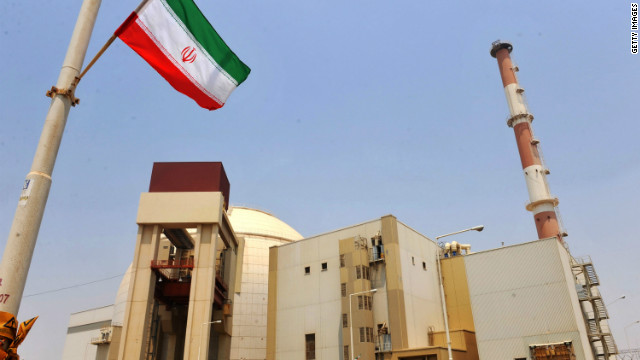Despite sanctions, Iran to continue uranium enrichment 'with intensity'

By Sara Rajabova
Iran will go on refining uranium "with intensity" and the number of enrichment centrifuges it has operating will rise substantially in the current year, the country's nuclear energy chief was quoted as saying on Wednesday, Reuters reported.
The comments by Fereydoun Abbasi-Davani, head of Iran's Atomic Energy Organisation (IAEA), signaled continued defiance in the face of international demands that Tehran halt enrichment to the higher 20 percent fissile purity level, close down its Fordow enrichment plant, and ship out its stockpile of the material.
But he also said Iran would continue and possibly raise its output of reactor fuel using 20 percent enriched uranium - which suggests that less of it might be available for use in what the West suspects is an attempt to develop atomic bombs.
"Despite the sanctions, most likely this year we will have a substantial growth in centrifuge machines and we will continue enrichment with intensity," state television quoted Abbasi-Davani as saying. The Iranian calendar year ends on March 20.
Abbasi-Davani said Iran was continuing its production of fuel to power the Tehran reactor - which uses fuel converted from 20 percent enriched uranium - and could possibly increase its production from two "complexes" of fuel per month to three, according to state news agency IRNA.
That could help ease concerns over a recent increase in Iran's higher-grade uranium stockpile, which Western countries fear could be diverted for use in a possible weapons program.
A U.N. nuclear watchdog report issued this month showed that Iran in late September suddenly stopped converting 20 percent enriched uranium into oxide powder used at the Tehran reactor.
Besides, Iran started producing 20 percent-enriched uranium at the Fordow site, buried deep inside a mountain, in 2011 and has been operating 700 centrifuges there since January. The U.N. report said more centrifuges may soon be launched.
Abbasi-Davani also said the Arak research reactor, which Western experts say could potentially offer Iran a second route to material for a nuclear bomb, faced "no problems" and was progressing towards a launch as normal, the IRIB website reported.
The U.N. report showed that Iran has postponed until 2014 the planned start-up of the Arak complex, which analysts say could yield plutonium for nuclear arms if the spent fuel is reprocessed.
Also, on Wednesday Iranian media reported that Bushehr nuclear power plant is ready to resume operations after being reloaded with fuel.
The refueling operation was conducted in the presence of experts from the International Atomic Energy Agency (IAEA).
Iran says it needs 20 percent refined uranium - as opposed to the lower-grade enrichment to 3.5 percent level needed for nuclear power plants - to turn into fuel for a medical research reactor in Tehran.
It says its nuclear program has purely peaceful purposes.
The nuclear talks between Iran and the world powers - the United States, China, Russia, France, Germany, and Britain - have been deadlocked since a June meeting that ended without breakthrough.
According to Reuters, diplomats expect a new meeting in Istanbul later this year or in January. One diplomatic source said the powers would propose the first half of December but that the following month was more likely.
Also, a delegation of the IAEA headed by Deputy Director General Herman Nackaerts will visit Iran in early December, Fars news agency reported with reference to Iranian nuclear energy chief Fereydoun Abbasi-Davani. The purpose of the visit is to continue the talks on the Iranian nuclear issue and to accomplish clear results.
The latest negotiations between Tehran and the IAEA were held in late August 2012 in Vienna. The Iranian delegation was headed by its ambassador to the IAEA Ali Asghar Soltanieh.
Until now the UN Security Council has adopted four rounds of sanctions on Iran to curb the country's nuclear policy and its sensitive nuclear activities.
Here we are to serve you with news right now. It does not cost much, but worth your attention.
Choose to support open, independent, quality journalism and subscribe on a monthly basis.
By subscribing to our online newspaper, you can have full digital access to all news, analysis, and much more.
You can also follow AzerNEWS on Twitter @AzerNewsAz or Facebook @AzerNewsNewspaper
Thank you!
